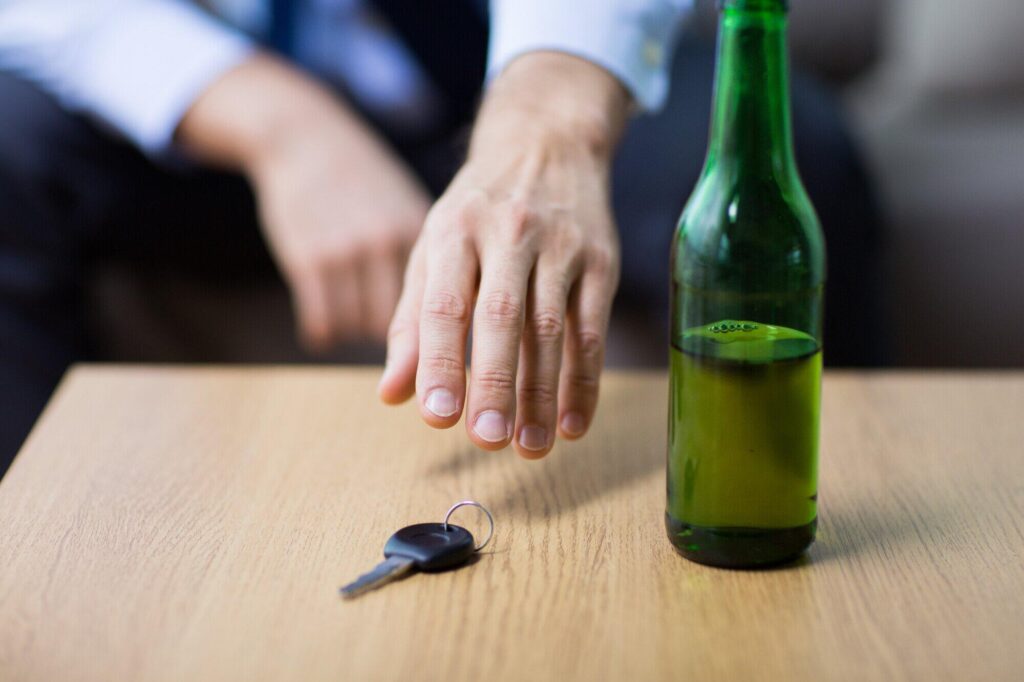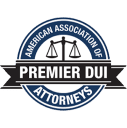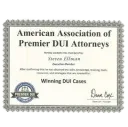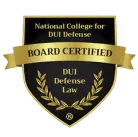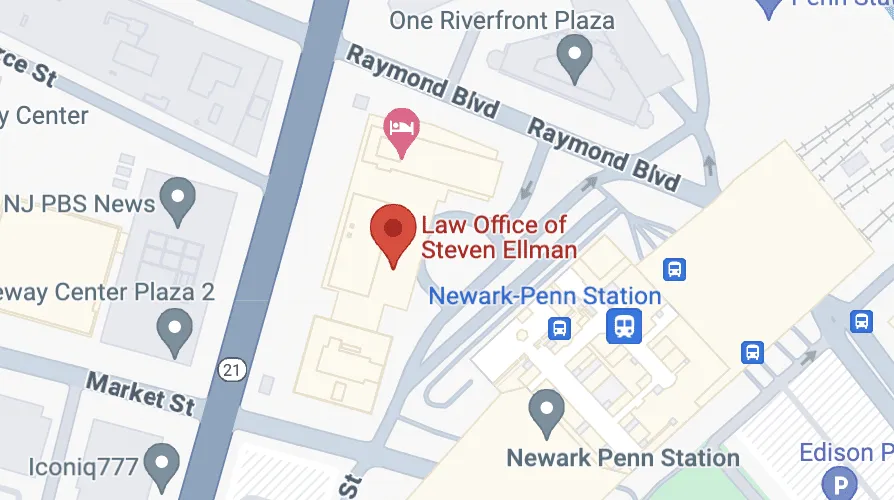Consequences and Penalties of a Second DUI Offense in NJ
If you’ve been charged with a second DUI offense in New Jersey you may be wondering what the consequences and penalties are. Learn more here!
What happens when you get caught driving under the influence for the second time? The reality hits hard and fast.
A second DUI offense in New Jersey means severe consequences that can turn your life upside down. The penalties are far harsher than a first offense, affecting your freedom, finances, and future. You’ll face jail time, hefty fines, and a long license suspension.
The impact on your personal and professional life can be devastating. It’s essential to understand what’s at stake so you can take the necessary steps to protect yourself. The road ahead is tough, but being informed is your first step toward navigating it.
Immediate Second DUI Penalties: What to Expect
The first blow you feel will come from the court. A second DUI offense leads to jail time. You face up to 90 days behind bars.
The court might also impose community service hours. These punishments are mandatory; there’s no wiggle room.
You’ll lose your driver’s license for at least two years. This loss impacts your daily life.
Getting to work, running errands, and meeting family obligations becomes difficult. Public transportation and rideshares might become your new normal.
In addition to these immediate second DUI consequences, expect increased scrutiny. Probation officers will keep a close eye on your actions.
Any more slip-ups can lead to even harsher penalties. It’s a challenging road, but knowing what’s coming helps you prepare and face these consequences head-on.
Financial Penalties: The Cost of a Second DUI
Prepare to open your wallet wide. A second DUI offense carries hefty fines. You will pay up to $1,000 in court fees, but this doesn’t include the added costs of legal representation. Lawyers specializing in DUI cases charge high fees for their expertise.
Insurance rates will skyrocket and your current provider might drop you altogether. Finding new coverage won’t be easy or cheap as you’ll be considered a high-risk driver. This status means higher premiums and fewer options.
Beyond fines and legal fees, you might face other financial strains. Mandatory programs, ignition interlock devices, and lost wages from missed work add up. The financial toll of a second DUI offense is significant and can strain your finances for years to come.
Long-Term Impacts on Your Life
The long-term impacts of a second DUI offense are extensive. Your criminal record will haunt you and future employers, landlords, and even schools might turn you away. Background checks reveal DUI offenses and this mark on your record reduces opportunities.
Your personal relationships could suffer. Trust takes a hit when loved ones see the severity of your actions. Friends and family might distance themselves. The social stigma can be overwhelming.
A second DUI offense affects more than just your immediate life. It changes how others perceive you and can limit your opportunities. It’s a hard reality to face, but understanding these long-term impacts helps you make better choices moving forward.
Legal Process: Navigating the System
After your arrest, you’ll face a series of court appearances, each critical to the outcome of your case. The legal process for a second DUI offense in New Jersey is complex and requires careful navigation.
Missing a court date or failing to comply with court orders can lead to even harsher penalties. This process begins with your arraignment, where you’ll enter a plea, and continues through pre-trial hearings and potentially a trial.
Hiring a skilled DUI lawyer is crucial. They understand the intricacies of New Jersey’s DUI laws and can provide the guidance you need. Your lawyer will help you understand the charges, negotiate plea deals, and build a strong defense.
Legal representation can make a significant difference, potentially reducing your sentence or securing alternative penalties. Navigating the legal system is daunting, but with the right support, you can achieve the best possible outcome.
Mandatory Programs and Rehabilitation
A second DUI offense means mandatory programs are in your future. You’ll be required to attend the Intoxicated Driver Resource Center (the IDRC).
Here, you’ll undergo a thorough evaluation and participate in educational sessions designed to prevent future offenses. These programs are compulsory and must be completed in full to comply with court orders.
In addition to the IDRC, you may be ordered to attend alcohol treatment programs. These programs focus on addressing underlying issues that contribute to DUI offenses, aiming to reduce the risk of reoffending.
They often involve group therapy, individual counseling, and educational workshops. Compliance with these programs is essential to regaining your driving privileges and demonstrating your commitment to change.
Participating in these programs can be a positive step toward recovery and personal growth. They provide the tools and support needed to make lasting changes and avoid future legal troubles.
Ignition Interlock Devices: Driving with Restrictions
Once your license is reinstated, expect significant restrictions on your driving privileges. An ignition interlock device (IID) will be installed in your vehicle.
This device requires you to provide a breath sample before the engine starts. If any alcohol is detected, the car will not start. This measure aims to prevent repeat offenses and ensure safer roads.
The cost of the IID is your responsibility. You’ll need to cover installation, maintenance, and removal fees, which can add up over time. The duration for which the device remains on your vehicle varies but typically lasts from one to three years, depending on the court’s ruling and your compliance with other requirements.
While driving with an IID is restrictive, it allows you to regain some independence. Complying with this requirement is crucial for maintaining your driving privileges and demonstrating your commitment to responsible behavior. It’s a step towards rebuilding your life after a second DUI offense.
Impact on Employment
A second DUI offense can significantly impact your employment. Employers often conduct background checks, and a second DUI will appear on your record.
This can limit job opportunities, especially in fields requiring a clean driving record or those involving public safety. You may find it challenging to secure a position that aligns with your skills and experience.
If you’re currently employed, a second DUI can jeopardize your job. Your employer may view the offense as a liability, leading to disciplinary action or even termination.
The stigma associated with a DUI can affect your professional reputation, making it harder to advance in your career. Understanding these risks helps you take proactive steps to protect your employment status.
Effects on Personal Relationships
A second DUI offense can strain personal relationships. Trust is a foundational element in relationships, and repeated offenses can erode that trust.
Family members and friends may feel disappointed or betrayed, leading to strained interactions and emotional distance. The social stigma associated with a second DUI can also lead to feelings of shame and isolation.
Rebuilding these relationships requires effort and commitment. Open communication, honesty, and a genuine willingness to change can help repair the damage.
Seeking support from loved ones and involving them in your recovery process can also foster understanding and strengthen bonds. Acknowledging the impact on your personal life is crucial for personal growth and healing.
Community Service Requirements
A second DUI offense often includes mandatory community service. The court will assign a specific number of hours you must complete.
These hours are typically served in nonprofit organizations, community centers, or public service projects. Community service is designed to give back to the community and demonstrate your commitment to making amends for your actions.
Completing community service requires dedication and time management. Balancing these hours with work and personal responsibilities can be challenging, but it’s essential to comply fully to avoid additional penalties.
Community service can also be a positive experience, providing opportunities to connect with others and contribute to meaningful causes. Embracing this requirement can be a step towards rehabilitation and community reintegration.
Finding a DUI Lawyer: Steps to Take
Finding the right DUI lawyer is crucial for navigating a second DUI offense. Start by researching local attorneys who specialize in DUI cases. Look for those with extensive experience in New Jersey’s DUI laws and a proven track record of successful outcomes. Online reviews, testimonials, and ratings can provide insights into a lawyer’s reputation and client satisfaction.
Schedule consultations with a few attorneys to discuss your case. During these meetings, ask about their experience, approach to DUI cases, and fee structure. A good lawyer will offer clear advice and outline a strategy tailored to your situation. They should also be transparent about costs and any potential additional fees.
Consider the lawyer’s communication style and availability. You’ll need someone responsive and easy to work with throughout your case. Making an informed choice ensures you have strong legal representation, increasing your chances of a favorable outcome.
Deal With Your Second DUI Offense the Right Way
A second DUI offense in New Jersey is a serious matter. The penalties are harsh, and the impacts are far-reaching. If you’re facing these charges, take immediate action. Consult a DUI lawyer, comply with court orders, and commit to change.
If you’re facing DUI or serious traffic violation charges, you need a fierce, dedicated advocate. Steven Ellman has successfully defended the most complex DUI and DWI cases for 35 years.
Contact Steven Ellman today for a free, confidential consultation and benefit from his authoritative yet personal approach.

